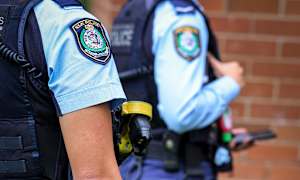Crime Stoppers NSW is announcing a significant law enforcement collaboration to tackle online crime, ranging from child abuse or unwanted contact, cyberbullying and scams.
Crime Stoppers provides a simple gateway for communities to report this information and ensure the information is shared with police.
“We often see people are willing to share information online, such as through online community groups so neighbours and the local community are aware of what’s happening in their neighbourhood,” said Crime Stoppers NSW CEO Peter Price.
“And while that information can help be aware of suspicious activity, sharing that information with Crime Stoppers ensures it’s passed on to police so the appropriate action can be taken.
“Our website makes it easier for the community to report information, in a safe and secure way.”
Latest Stories
Crimes can also be reported through the Police Assistance Line or in urgent cases Triple Zero (000).
Mr Price said the online space is unfortunately also being used to commit crimes and incidents of cyberbullying, and other forms of online abuse are also on the rise.
Crime Stoppers is also working with the eSafety Commissioner to warn of the dangers of crime online, including incidents of cyberbullying and other forms of online abuse.
The eSafety Commissioner has reported an increase in cyberbullying reports of 450 per cent in the past five years.
Commissioner Julie Inman Grant said cyberbullying reports tend to increase during the school term as online bullying is often an extension of bullying behaviour in the playground or classroom.
“We know the real-world consequences of cyberbullying can be devastating, particularly for young people,” Ms Inman Grant said.
“Unfortunately we are seeing a significant proportion of cyberbullying complaints impacting young people aged 12 and 13, many of whom are navigating high school for the first time.
"And interestingly girls are reporting cyberbullying at double the rate compared to boys.
“Most importantly the conversations you have now with your children are about reassuring them they can come to you if anything they experience online makes them feel uneasy.”
Technology-facilitated abuse including image-based abuse, sexual extortion, harassment, stalking and even coercive controlling behaviour are also common.
An online campaign targeted at parents, carers and young people will show the community where to go for more information, how to make a report and provide access to resources for parents and schools to keep young people safe.
The eSafety Commissioner has some great resources to help the community manage the digital space.
Its Spotlight On Cyberbullying resource is designed to offer a whole-school approach to preventing and managing Cyberbullying.
There are resources for schools, parents and carers, as well as information designed to help children and young people.
The AFP-led Australian Centre to Counter Child Exploitation (ACCCE) has endorsed a call for families to be more proactive about online safety.
ACCCE research shows only 52 per cent of parents and carers currently speak with their children about online safety.
This has sparked an urgent plea to make it a conscious topic of communication, so everyone has a realistic understanding of the online environment and children feel comfortable seeking help if something happens.
"It’s about education for everyone and letting kids know if they do become a victim they’re not alone, there is support available and they will not get into trouble," Crime Stoppers said.
"It’s a conversation that could save a life.
"Having a conversation with your child about online safety and making them feel comfortable about talking to you about it, means if something does happen, they are likely to seek help."
The eSafety Commissioner has developed tips and guides for parents and carers for these hard-to conversations with their child, with more information on their website.
"For children, in particular teens who may be caught up in sextortion or other image-based abuse, we want them to know they are not alone, and we can help," Crime Stoppers said.
"Our message to teens is it’s never too late to say something.
"Despite what anyone says, you will not be in trouble if you speak to a trusted adult and when you do, you can get help."












